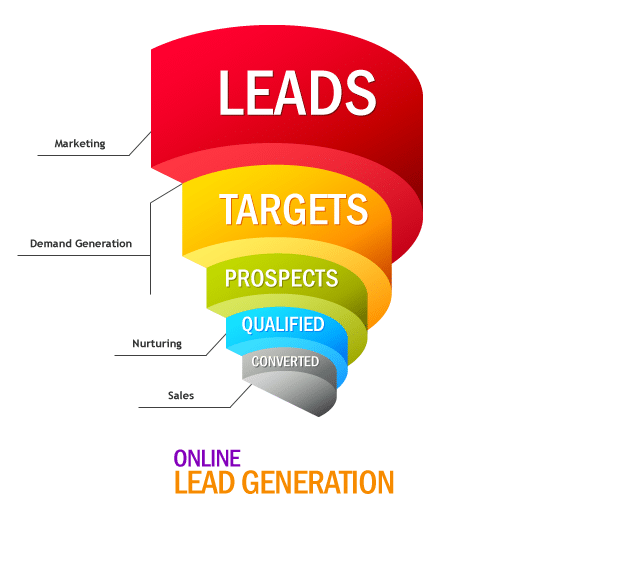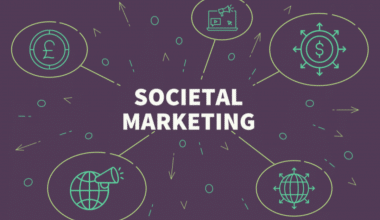Customers dislike being pressed into making a purchase. A pushy salesperson tends to be more concerned with earning a commission than with assisting the consumer.
The consultative selling approach eliminates this by focusing on solutions and the consumer. Essentially, the aim is to develop meaningful relationships with consumers by assisting them in resolving issues, whether by your product or another’s. In this article, we’ll learn more about the consultative selling process and the benefits of the training to the consultative sales team.
What is Consultative Selling?
Consultative sales is a sales strategy in which representatives behave more as advisors than salespeople, recommending options to potential buyers based on their desires and problems.
To put it another way, it is the method of selling a solution rather than a commodity.
Of course, consultative selling is not always acceptable. It usually applies if your customer has done preliminary research on products or solutions but is unsure which one is best for them.
In this scenario, rather than at the beginning, the first interaction with a customer happens in the middle of their customer journey. Although this may seem to be an unlikely scenario, the increasing availability and accessibility of online services mean that the consultative selling approach is more important than ever.
Consultative Selling Approach
Since product details, solutions, feedback, and tools are easily accessible to customers online, sales representatives are finding it more difficult to manage the customer conversation.
The consultative sales strategy assists sales representatives in meeting consumers where they are in their consumer journey, ensuring that the relationship is both valuable and profitable.
However, for this consultative selling approach to be successful, reps must first gain a comprehensive understanding of the consumer and their needs.
- Pay close attention to your client.
- Inquire about your customer’s brand, pain points, problems, existing solutions, and needs.
- Maintain objectivity.
- Instead of focusing on goods or functionality, consider alternatives.
- Show that you have a clear understanding of your customer’s needs.
- Provide the customer with useful knowledge and tools (without asking for anything in return)
Offer a solution that meets those needs, whether or not it is your product.
Let’s take a look at an example of how this strategy could be used in a future sales scenario.
The Consultative Selling Process
A company is thinking about investing in a CRM to help with data storage and is considering your software. They make contact with you.
The prospective client has read blogs on the topic, downloaded thought leadership bits, and participated in online forums. They understand what makes an efficient and reliable CRM, but they are unsure how it would fit into their overall company strategy. This is where you come into play.
You ask detailed questions to find out how they plan to use a CRM. You work hard to learn everything you can about their company and their needs by attending webinars and reading their company blog and news posts. Hence, you learn about their current tech stack.
You then use your experience to develop a strategy or make recommendations to effectively implement a CRM and assist them in making the right decision for their company. In this case, your company’s CRM may not be the best choice for the customer’s business.
But that’s fine. Remember that consultative selling is about selling a solution rather than a commodity. At the end of the day, the aim is to deliver true value to the consumer while also developing a strong relationship with them. If you achieve this aim, it is more likely that the customer will come to you with potential business needs and will recommend you to others.
With that in mind, let’s look at the four consultative sales standards.
#1. To understand the customer’s needs, ask the right questions.
Your clients are well aware of their own difficulties. It is your responsibility to decide whether or not what certain customers believe they need corresponds to what they actually need. Knowing how to ask the right questions is critical for diagnosing the root cause of your customer’s problems and, eventually, recommending the best solution for their business.
Begin your research at a high level by visiting your customer’s LinkedIn page to learn about their company size, product or service, and target audience. Working at a micro-level, learn about your customer as an individual by reviewing his or her:
- Account on social media
- Personal website
- LinkedIn personal profile
- Individuals affected by company news
- Page visits and time spent on each page (ask your marketing department for this information)
Find out how much the client has budgeted for a solution and what services will be available to them in the process of implementing the solution during the initial conversations. This knowledge will be critical in ensuring that the consultative selling approach you propose is both feasible and suitable for your customer’s unique requirements.
You might conclude at this point that your company’s product or solution is not a good match for the customer. If this is the case, you can still have solutions and guidance, but only after pointing them in the right direction.
#2. Active listening may be used to read between the lines.
Every customer has unique requirements. Listen to what the customer says, but still try to figure out what they need. Read between the lines and try to figure out what’s going on.
The 80/20 Rule of Communication is the perfect way to be an engaged listener. Spend 80% of your time listening and just 20% of your time speaking:
- Find out more about the person.
- Make a summary of the facts to ensure that you understand them.
- Take note of both verbal and nonverbal cues.
Assume you are a financial subscription company that is approached by a potential customer: the person says they mainly want a reporting system, but you note during the discussion that they keep referring to how disorganized company receipts are. You determine that organization is the most important requirement.
Being an active listener can assist you in understanding a potential customer’s purchasing motivations and how you can better assist them.
#3. Educate your prospective client.
This is not the same as informing potential customers of your product or service. At this point, the knowledge you want to share is more industry-specific.
You have the knowledge; put it to good use. You are educating the potential customer about how to make an informed decision. Assume this individual has done their homework; your goal is to teach them how to apply what they already know.
Here are a few items you can give a potential customer:
- Examples from your own experience
- A strategy for dealing with their problem
- Suggestions for dealing with similar issues
In addition to face-to-face or phone interviews, you can disseminate this information through webinars, videos, and reports. Although you do not want to share everything you know, you do want to be as supportive as possible. Act as a consultant rather than a salesperson.
#4. Personalize the consultative selling approach.
As you get closer to a sale, concentrate on personalizing the customer’s experience.
Since you don’t want to put the customer under any pressure to buy your CRM, naturally suggest how those features could meet their needs during a conversation.
To plan for this, consider how the product/service suits the needs of that client. Demonstrate to the customer the value of investing in your business. Respond to the following questions:
- How can I tailor what I’m selling to meet the unique needs of the customer?
- May we offer an extra product/service package?
- Can we have a specific discount or promotion?
In your discussion, emphasize the answers to these questions and offer the customer concrete examples of where it has succeeded for others in the past. Consider what the consumer will lose if they do not act.
Consultative Selling Training
Buyers today are astute, but they need the assistance of sales professionals to diagnose their needs and find strategies that will result in the desired business results.
Your sales team requires consultative selling training to enable them to add value to the purchasing process and distinguish themselves from the competition.
Business Benefits of Consultative Selling Training Program
Your sales team will benefit from the following market advantages after completing the Consultative Selling skills training program:
- Improve close ratios for new customers and extend business with existing ones to raise sales.
- Develop a sales culture that is closely aligned with consumer needs to gain a competitive edge.
- By bringing to light previously unidentified needs, you will create new and larger opportunities.
- Reduce the duration of the sales cycle by generating momentum and increasing customer trust in their ability to commit.
Consultative Selling Framework
#1. Preparation
Good call preparation brings about meaningful customer meetings, higher credibility, a shorter sales cycle, and better sales results. The right preparation approach ensures every customer call skyrockets sales.
#2. Connection
This is the foundation of consultative selling. If you must connect with customers effectively to close sales, you must understand them first. Furthermore, you do this by making inquiries.
#3. Understanding
Connecting as a framework of consultative selling welcomes the customer, establishes a rapport, and sets a friendly tone. Credibility is enhanced by a solid start. This is the foundation of consultative selling. If you must connect with customers effectively to close sales, you must understand them first. Furthermore, you do this by making inquiries.
#4. Recommendation
The salesperson must offer solutions in simple terms. It can also make the salesperson sound interesting or uninteresting.
#5.Commitment
Approaching closing as a process reduces the odds of rejection and raises the chances of acquiring commitment and winning the contract.
#6. Action
Make sure to have excellent follow-up teams. They invariably ensure a good percent of calls placed are actualized.
What are the essential skills required for consultative selling?
To excel in consultative selling, a salesperson needs to have excellent communication and interpersonal skills, the ability to listen to and understand the customer’s needs, and a deep knowledge of their products or services. Additionally, it’s important to have strong analytical and problem-solving skills to provide customized solutions to meet the customer’s needs.
How can I improve my consultative selling skills?
To improve your consultative selling skills, you can attend sales training courses, participate in role-playing exercises, and seek feedback from your manager or peers. You can also read books and articles on consultative selling and attend webinars or workshops to stay up-to-date on industry trends and best practices.
What is the difference between consultative selling and traditional selling?
The main difference between consultative selling and traditional selling is that in consultative selling, the salesperson takes a personalized approach to understand the customer’s needs and provides solutions tailored to those needs, while in traditional selling, the salesperson focuses on selling a pre-determined product or service.
What are the steps involved in a consultative selling process?
The steps involved in a consultative selling process include understanding the customer’s needs, providing customized solutions, building rapport, presenting solutions, and closing the sale.
Why is consultative selling more effective than traditional selling?
Consultative selling is more effective than traditional selling because it focuses on the customer’s needs and provides solutions tailored to those needs, which increases the chances of making a sale. This approach also helps to build stronger, more long-lasting relationships with customers.
How can I apply consultative selling in my day-to-day sales activities?
To apply consultative selling in your day-to-day sales activities, you need to focus on understanding the customer’s needs, listen to their concerns, and provide solutions tailored to meet their specific requirements. You should also take the time to build rapport with the customer, use storytelling to present solutions, and be prepared to close the sale by highlighting the benefits of the proposed solution.
Conclusion
The secret to consultative selling is to be genuine.
The overarching concept is to be sincere and authentic with each potential customer. Consider yourself a trusted advisor to your client’s team (a consultant) rather than an outside sales rep. Remember, consultative sales are about creating a constructive, mutually beneficial, and long-lasting customer partnership, not a one-sided transaction.
Consultative Selling FAQs
What is consultative example?
Consultative is an adjective that describes giving advice or assistance. … You’re probably familiar with the verb consult, which means “get advice.” Consultative is just the adjective form of that verb. Consultative can be used to describe anything or anyone in the business of providing advice or counsel.
What is consultative selling How would you apply it as a sales person explain the roles of consultative selling with example?
Consultative selling is a sales approach that involves forming trusting relationships with clients and allowing them to communicate their needs. … They offer solutions that address their clients’ specific needs, rather than trying to sell them specific products.
How did I apply what I learned in consultative selling approach?
Here are some steps for implementing a consultative sales process:
- Become a trusted authority through active listening and asking better questions.
- Conduct in-depth research to understand your customers.
- Lead the conversation.
- Come up with a tailored solution just for them
How do relationships bring value through consultative selling ?
The relationship is the framework for consultative selling; it’s what allows you to have an open, honest dialogue, ask the right questions, understand your customer’s needs, and go beyond advising to help your customer make the decision that’s right for you her.
- CUSTOMER RELATIONSHIP MANAGEMENT (CRM): Definition, Tools, and Importance
- Free Example of a Business Plan
- 5 Things You Must Do Before Starting a Business.
- REAL ESTATE DEVELOPMENT BUSINESS: How to become a Developer and detailed steps to start a company
- Real Estate Business: A Definitive Guide for Beginners (+ How to start tips)






